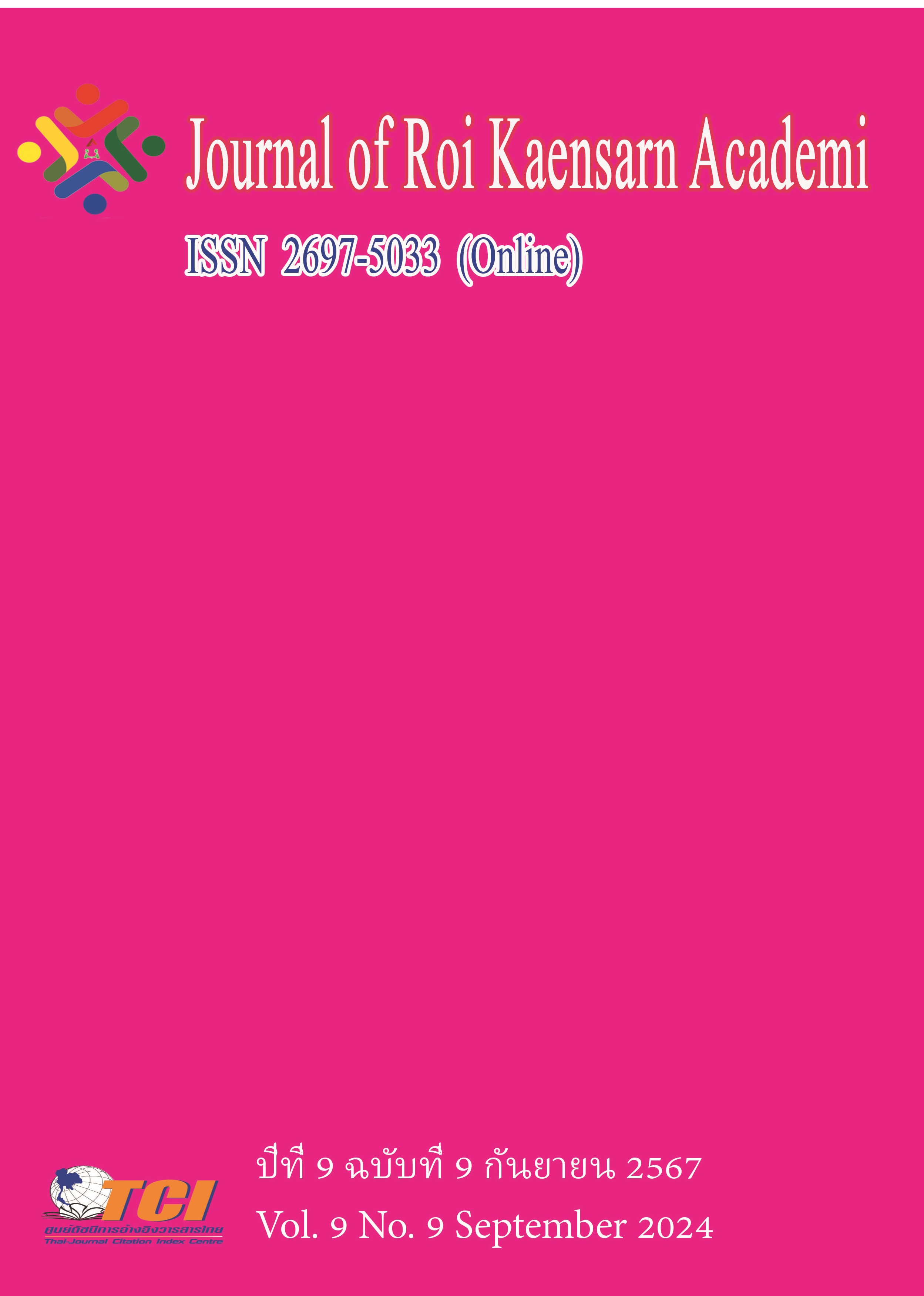Coaching Competency Strategic Management of Chengdu Wushu Sanda Club
Main Article Content
บทคัดย่อ
With the continuous improvement of people's awareness of health and self-protection, Wushu Sanda sports are increasingly popular. As the core force of the club, the competence of Wushu Sanda coaches is directly related to the learning effect of students and the development of the club. Therefore, I am conducting research on this topic. The objective of this research were to: (1) To study the current situation of coaching competency strategic management of Chengdu Wushu Sanda club. (2) To analyze factors effect Chengdu Wushu Sanda club coaching competency strategic management. (3) To Examine and confirm Chengdu Wushu Sanda club coaching competency strategic management.
This research employed a mixed research methodology combining a quantitative and qualitative research methods. The research results show that: (1) The current situation of Coaching competency strategic management of Chengdu Wushu Sanda Club reflects the actual situation of the influencing factors of Coaching competency strategic management of Chengdu Wushu Sanda Club. The improvement of the competence of Wushu Sanda coaches promotes the healthy and sustainable development of the Wushu Sanda industry. Through comprehensive analysis of these factors, the level of coaching competency strategic management of Chengdu Wushu Sanda Club can be further improved. (2) There are five factors: Training, Teaching, Management, Innovation, Self-improvement that have a significant positive impact on coaching competency strategic management of Chengdu Wushu Sanda Club. Among then, (3) It can be seen that the study's analysis of the current situation survey information and research data on coaching competency strategic management of Chengdu Wushu Sanda Club was unanimously approved. And the quantitative research results all have a certain degree of interpretability, and the structural equation model has good credibility and validity, which has a certain value of promotion.
Article Details
เอกสารอ้างอิง
Chen, H. (2013). Research on the application of salesperson quality assessment method based on competency model. Education, (24), 137-139.
Chen, Z. (2011). Research on the relationship between teachers' sense of organizational support, job satisfaction and job performance in private colleges and universities. Journal of Yangtze University (Social Sciences), 34 (03), 144-145.
Dou, A., & Cui, R. (2019). Construction of salesperson competency model: A case study of Company M. Human Resources, (12), 74-75.
Hu, J. (2008). Analysis of the definition of knowledge. Science (Social Sciences), (04), 13-23.
Li, Y., & Zhang, X. (2005). Structural dimensions of competency characteristics for primary and secondary school teachers. Sciences, (4), 115.
Luo, X. (2015). An empirical study on the relationship between mental health, competency and job engagement of secondary school teachers. Practice, (25), 43-46.
Meng, X. (2010). Research on the relationship between employees' organizational support, job satisfaction, and turnover tendency: From the perspective of industry restructuring. Industrial Technological Economics, 29 (05), 98-101.
Wang, Y. (2017). The training of competency of new teachers in primary and secondary schools with non-teaching majors. Education Observation (Second Half Month), 6 (08), 28-29.
Wang, Z. (2015). Research on the practice of competency model for young teachers in colleges. Universities in China, (3), 90-92.
Xing, Q., & Meng, W. (2003). Assessment of the competency of future teachers: Principles and techniques. Research, (04), 39-42.
Xu, J., & Zhang, H. (2006). A competency model for primary and secondary school teachers: A behavioral event interview study. Research, (1), 57-61.
Yang, M. (2017). Analysis of the key influencing factors of college teachers' competency under the cultivation of innovative talents. China, (04), 138-140.
Yao, E., Xu, N., & Han, Y. (2009). The impact of competency and coping strategies on teachers' professional stress. Psychological Development and Education, 25 (02), 103-108.
Zhan, X., & Yang, D. (2018). Research on the influence of work values on employees' suggestions based on the moderating effect of organizational support. Chinese Journal of Management, 13 (9), 1330-1338.

